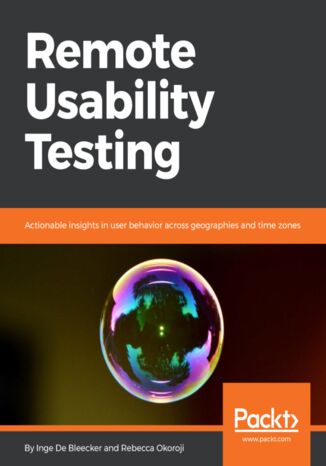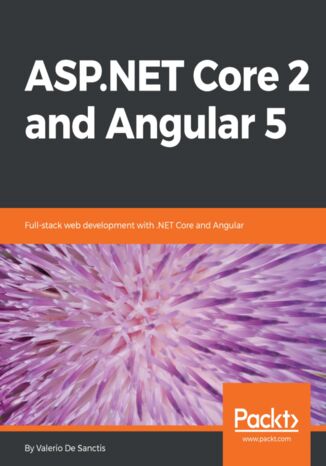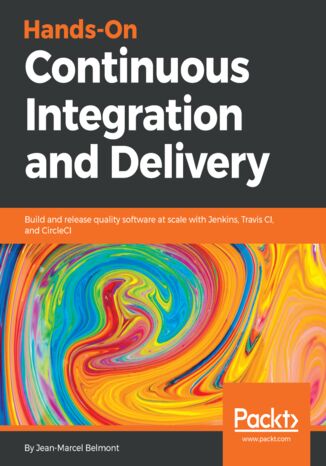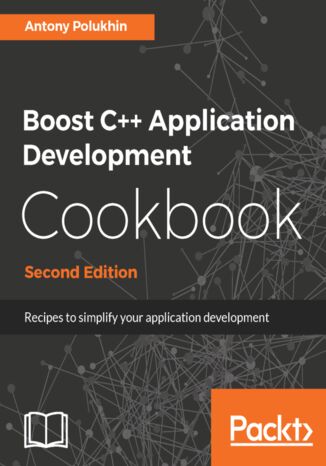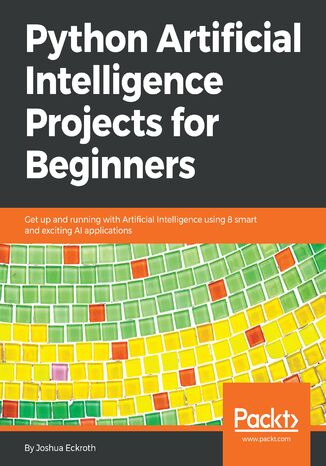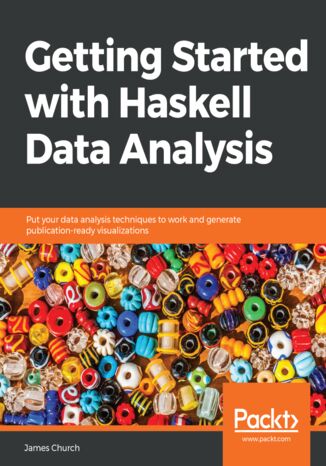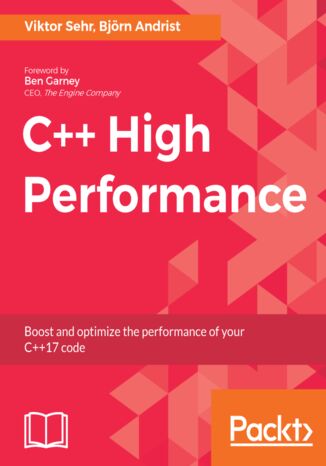Categories
Ebooks
-
Business and economy
- Bitcoin
- Businesswoman
- Coaching
- Controlling
- E-business
- Economy
- Finances
- Stocks and investments
- Personal competence
- Computer in the office
- Communication and negotiation
- Small company
- Marketing
- Motivation
- Multimedia trainings
- Real estate
- Persuasion and NLP
- Taxes
- Social policy
- Guides
- Presentations
- Leadership
- Public Relation
- Reports, analyses
- Secret
- Social Media
- Sales
- Start-up
- Your career
- Management
- Project management
- Human Resources
-
For children
-
For youth
-
Education
-
Encyclopedias, dictionaries
-
E-press
- Architektura i wnętrza
- Health and Safety
- Biznes i Ekonomia
- Home and garden
- E-business
- Ekonomia i finanse
- Esoterecism
- Finances
- Personal finance
- Business
- Photography
- Computer science
- HR & Payroll
- For women
- Computers, Excel
- Accounts
- Culture and literature
- Scientific and academic
- Environmental protection
- Opinion-forming
- Education
- Taxes
- Travelling
- Psychology
- Religion
- Agriculture
- Book and press market
- Transport and Spedition
- Healthand beauty
-
History
-
Computer science
- Office applications
- Data bases
- Bioinformatics
- IT business
- CAD/CAM
- Digital Lifestyle
- DTP
- Electronics
- Digital photography
- Computer graphics
- Games
- Hacking
- Hardware
- IT w ekonomii
- Scientific software package
- School textbooks
- Computer basics
- Programming
- Mobile programming
- Internet servers
- Computer networks
- Start-up
- Operational systems
- Artificial intelligence
- Technology for children
- Webmastering
-
Other
-
Foreign languages
-
Culture and art
-
School reading books
-
Literature
- Antology
- Ballade
- Biographies and autobiographies
- For adults
- Dramas
- Diaries, memoirs, letters
- Epic, epopee
- Essay
- Fantasy and science fiction
- Feuilletons
- Work of fiction
- Humour and satire
- Other
- Classical
- Crime fiction
- Non-fiction
- Fiction
- Mity i legendy
- Nobelists
- Novellas
- Moral
- Okultyzm i magia
- Short stories
- Memoirs
- Travelling
- Narrative poetry
- Poetry
- Politics
- Popular science
- Novel
- Historical novel
- Prose
- Adventure
- Journalism, publicism
- Reportage novels
- Romans i literatura obyczajowa
- Sensational
- Thriller, Horror
- Interviews and memoirs
-
Natural sciences
-
Social sciences
-
School textbooks
-
Popular science and academic
- Archeology
- Bibliotekoznawstwo
- Cinema studies
- Philology
- Polish philology
- Philosophy
- Finanse i bankowość
- Geography
- Economy
- Trade. World economy
- History and archeology
- History of art and architecture
- Cultural studies
- Linguistics
- Literary studies
- Logistics
- Maths
- Medicine
- Humanities
- Pedagogy
- Educational aids
- Popular science
- Other
- Psychology
- Sociology
- Theatre studies
- Theology
- Economic theories and teachings
- Transport i spedycja
- Physical education
- Zarządzanie i marketing
-
Guides
-
Game guides
-
Professional and specialist guides
-
Law
- Health and Safety
- History
- Road Code. Driving license
- Law studies
- Healthcare
- General. Compendium of knowledge
- Academic textbooks
- Other
- Construction and local law
- Civil law
- Financial law
- Economic law
- Economic and trade law
- Criminal law
- Criminal law. Criminal offenses. Criminology
- International law
- International law
- Health care law
- Educational law
- Tax law
- Labor and social security law
- Public, constitutional and administrative law
- Family and Guardianship Code
- agricultural law
- Social law, labour law
- European Union law
- Industry
- Agricultural and environmental
- Dictionaries and encyclopedia
- Public procurement
- Management
-
Tourist guides and travel
- Africa
- Albums
- Southern America
- North and Central America
- Australia, New Zealand, Oceania
- Austria
- Asia
- Balkans
- Middle East
- Bulgary
- China
- Croatia
- The Czech Republic
- Denmark
- Egipt
- Estonia
- Europe
- France
- Mountains
- Greece
- Spain
- Holand
- Iceland
- Lithuania
- Latvia
- Mapy, Plany miast, Atlasy
- Mini travel guides
- Germany
- Norway
- Active travelling
- Poland
- Portugal
- Other
- Przewodniki po hotelach i restauracjach
- Russia
- Romania
- Slovakia
- Slovenia
- Switzerland
- Sweden
- World
- Turkey
- Ukraine
- Hungary
- Great Britain
- Italy
-
Psychology
- Philosophy of life
- Kompetencje psychospołeczne
- Interpersonal communication
- Mindfulness
- General
- Persuasion and NLP
- Academic psychology
- Psychology of soul and mind
- Work psychology
- Relacje i związki
- Parenting and children psychology
- Problem solving
- Intellectual growth
- Secret
- Sexapeal
- Seduction
- Appearance and image
- Philosophy of life
-
Religion
-
Sport, fitness, diets
-
Technology and mechanics
Audiobooks
-
Business and economy
- Bitcoin
- Businesswoman
- Coaching
- Controlling
- E-business
- Economy
- Finances
- Stocks and investments
- Personal competence
- Communication and negotiation
- Small company
- Marketing
- Motivation
- Real estate
- Persuasion and NLP
- Taxes
- Social policy
- Guides
- Presentations
- Leadership
- Public Relation
- Secret
- Social Media
- Sales
- Start-up
- Your career
- Management
- Project management
- Human Resources
-
For children
-
For youth
-
Education
-
Encyclopedias, dictionaries
-
E-press
-
History
-
Computer science
-
Other
-
Foreign languages
-
Culture and art
-
School reading books
-
Literature
- Antology
- Ballade
- Biographies and autobiographies
- For adults
- Dramas
- Diaries, memoirs, letters
- Epic, epopee
- Essay
- Fantasy and science fiction
- Feuilletons
- Work of fiction
- Humour and satire
- Other
- Classical
- Crime fiction
- Non-fiction
- Fiction
- Mity i legendy
- Nobelists
- Novellas
- Moral
- Okultyzm i magia
- Short stories
- Memoirs
- Travelling
- Poetry
- Politics
- Popular science
- Novel
- Historical novel
- Prose
- Adventure
- Journalism, publicism
- Reportage novels
- Romans i literatura obyczajowa
- Sensational
- Thriller, Horror
- Interviews and memoirs
-
Natural sciences
-
Social sciences
-
Popular science and academic
-
Guides
-
Professional and specialist guides
-
Law
-
Tourist guides and travel
-
Psychology
- Philosophy of life
- Interpersonal communication
- Mindfulness
- General
- Persuasion and NLP
- Academic psychology
- Psychology of soul and mind
- Work psychology
- Relacje i związki
- Parenting and children psychology
- Problem solving
- Intellectual growth
- Secret
- Sexapeal
- Seduction
- Appearance and image
- Philosophy of life
-
Religion
-
Sport, fitness, diets
-
Technology and mechanics
Videocourses
-
Data bases
-
Big Data
-
Biznes, ekonomia i marketing
-
Cybersecurity
-
Data Science
-
DevOps
-
For children
-
Electronics
-
Graphics/Video/CAX
-
Games
-
Microsoft Office
-
Development tools
-
Programming
-
Personal growth
-
Computer networks
-
Operational systems
-
Software testing
-
Mobile devices
-
UX/UI
-
Web development
-
Management
Podcasts
Remote Usability Testing. Actionable insights in user behavior across geographies and time zones
Inge De Bleecker, Rebecca Okoroji
Usability testing is a subdiscipline of User Experience. Its goal is to ensure that a given product is easy to use and the user's experience with the product is intuitive and satisfying. Usability studies are conducted with study participants who are representative of the target users to gather feedback on a user interface. The feedback is then used to refine and improve the user interface.Remote studies involve fewer logistics, allow participation regardless of location and are quicker and cheaper to execute compared to in person studies, while delivering valuable insights. The users are not inhibited by being in a new environment under observation; they can act naturally in their familiar environment. Remote unmoderated studies additionally have the advantage of being independent of time zones.This book will teach you how to conduct qualitative remote usability studies, in particular remote moderated and unmoderated studies. Each chapter provides actionable tips on how to use each methodology and how to compensate for the specific nature of each methodology. The book also provides material to help with planning and executing each study type.
Beginning C# 7 Hands-On – Advanced Language Features assumes that you’ve mastered the basic elements of the C# language and that you're now ready to learn the more advanced C# language and syntax, line by line, in a working Visual Studio environment. You'll learn how to code advanced C# language topics including generics, lambda expressions, and anonymous methods.You'll learn to use query syntax to construct queries and deploy queries that perform aggregation functions. Work with C# and SQL Server 2017 to perform complex joins and stored procedures. Explore advanced file access methods, and see how to serialize and deserialize objects – all by writing working lines of code that you can run within Visual Studio.This book is designed for beginner C# developers who have mastered the basics now, and anyone who needs a fast reference to using advanced C# language features in practical coding examples. You'll also take a look at C# through web programming with web forms. By the time you’ve finished this book, you’ll know all the critical advanced elements of the C# language and how to program everything from C# generics to XML, LINQ, and your first full MVC web applications. These are the advanced building blocks that you can then combine to exploit the full power of the C# programming language, line by line.
ASP.NET Core 2 and Angular 5. Full-stack web development with .NET Core and Angular
Become fluent in both frontend and backend web development by combining the impressive capabilities of ASP.NET Core 2 and Angular 5 from project setup right through the deployment phase. Full-stack web development means being able to work on both the frontend and backend portions of an application. The frontend is the part that users will see or interact with, while the backend is the underlying engine, that handles the logical flow: server configuration, data storage and retrieval, database interactions, user authentication, and more. Use the ASP.NET Core MVC framework to implement the backend with API calls and server-side routing. Learn how to put the frontend together using top-notch Angular 5 features such as two-way binding, Observables, and Dependency Injection, build the Data Model with Entity Framework Core, style the frontend with CSS/LESS for a responsive and mobile-friendly UI, handle user input with Forms and Validators, explore different authentication techniques, including the support for third-party OAuth2 providers such as Facebook, and deploy the application using Windows Server, SQL Server, and the IIS/Kestrel reverse proxy.
Hands-On Continuous Integration and Delivery starts with the fundamentals of continuous integration (CI) and continuous delivery (CD) and where it fits in the DevOps ecosystem. You will explore the importance of stakeholder collaboration as part of CI/CD.As you make your way through the chapters, you will get to grips with Jenkins UI, and learn to install Jenkins on different platforms, add plugins, and write freestyle scripts. Next, you will gain hands-on experience of developing plugins with Jenkins UI, building the Jenkins 2.0 pipeline, and performing Docker integration. In the concluding chapters, you will install Travis CI and Circle CI and carry out scripting, logging, and debugging, helping you to acquire a broad knowledge of CI/CD with Travis CI and CircleCI.By the end of this book, you will have a detailed understanding of best practices for CI/CD systems and be able to implement them with confidence.
If you want to take advantage of the real power of Boost and C++ and avoid the confusion about which library to use in which situation, then this book is for you. Beginning with the basics of Boost C++, you will move on to learn how the Boost libraries simplify application development. You will learn to convert data such as string to numbers, numbers to string, numbers to numbers and more. Managing resources will become a piece of cake. You’ll see what kind of work can be done at compile time and what Boost containers can do. You will learn everything for the development of high quality fast and portable applications. Write a program once and then you can use it on Linux, Windows, MacOS, Android operating systems. From manipulating images to graphs, directories, timers, files, networking – everyone will find an interesting topic.Be sure that knowledge from this book won’t get outdated, as more and more Boost libraries become part of the C++ Standard.
Artificial Intelligence (AI) is the newest technology that’s being employed among varied businesses, industries, and sectors. Python Artificial Intelligence Projects for Beginners demonstrates AI projects in Python, covering modern techniques that make up the world of Artificial Intelligence.This book begins with helping you to build your first prediction model using the popular Python library, scikit-learn. You will understand how to build a classifier using an effective machine learning technique, random forest, and decision trees. With exciting projects on predicting bird species, analyzing student performance data, song genre identification, and spam detection, you will learn the fundamentals and various algorithms and techniques that foster the development of these smart applications. In the concluding chapters, you will also understand deep learning and neural network mechanisms through these projects with the help of the Keras library.By the end of this book, you will be confident in building your own AI projects with Python and be ready to take on more advanced projects as you progress
Every business and organization that collects data is capable of tapping into its own data to gain insights how to improve. Haskell is a purely functional and lazy programming language, well-suited to handling large data analysis problems. This book will take you through the more difficult problems of data analysis in a hands-on manner.This book will help you get up-to-speed with the basics of data analysis and approaches in the Haskell language. You'll learn about statistical computing, file formats (CSV and SQLite3), descriptive statistics, charts, and progress to more advanced concepts such as understanding the importance of normal distribution. While mathematics is a big part of data analysis, we've tried to keep this course simple and approachable so that you can apply what you learn to the real world.By the end of this book, you will have a thorough understanding of data analysis, and the different ways of analyzing data. You will have a mastery of all the tools and techniques in Haskell for effective data analysis.
C++ High Performance. Boost and optimize the performance of your C++17 code
C++ is a highly portable language and can be used to write both large-scale applications and performance-critical code. It has evolved over the last few years to become a modern and expressive language. This book will guide you through optimizing the performance of your C++ apps by allowing them to run faster and consume fewer resources on the device they're running on without compromising the readability of your code base.The book begins by helping you measure and identify bottlenecks in a C++ code base. It then moves on by teaching you how to use modern C++ constructs and techniques. You'll see how this affects the way you write code. Next, you'll see the importance of data structure optimization and memory management, and how it can be used efficiently with respect to CPU caches. After that, you'll see how STL algorithm and composable Range V3 should be used to both achieve faster execution and more readable code, followed by how to use STL containers and how to write your own specialized iterators.Moving on, you’ll get hands-on experience in making use of modern C++ metaprogramming and reflection to reduce boilerplate code as well as in working with proxy objects to perform optimizations under the hood. After that, you’ll learn concurrent programming and understand lock-free data structures. The book ends with an overview of parallel algorithms using STL execution policies, Boost Compute, and OpenCL to utilize both the CPU and the GPU.

